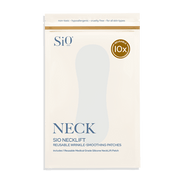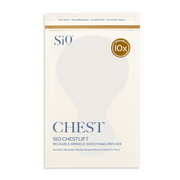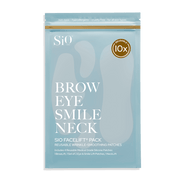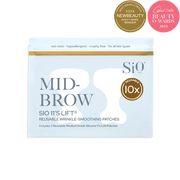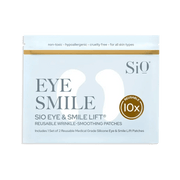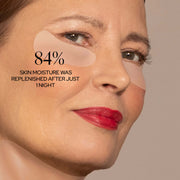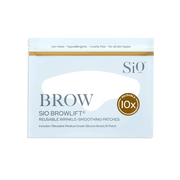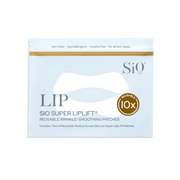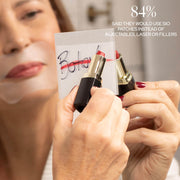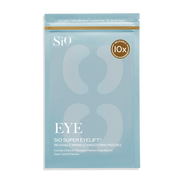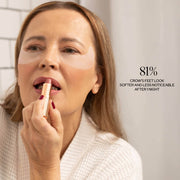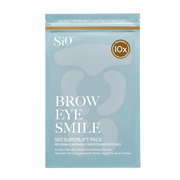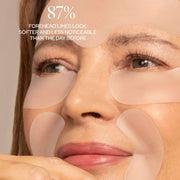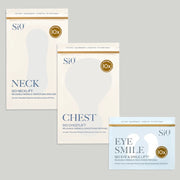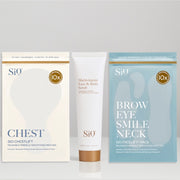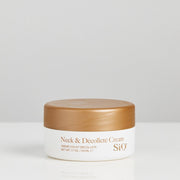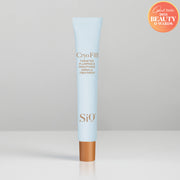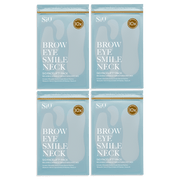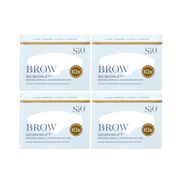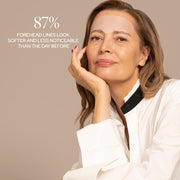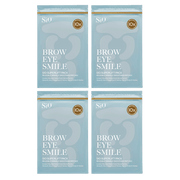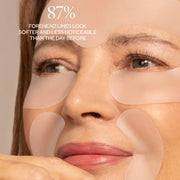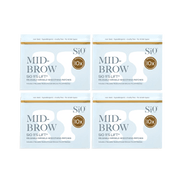Skincare Ingredients 101 - Vitamin C

While there’s no such thing as a “miracle treatment” to stop the aging process, vitamin C for the skin can produce some rather impressive results when it comes to battling extrinsic (sun, smoking, environmental pollution) and intrinsic (chronological) aging factors. Lifestyle habits such as excessive alcohol consumption, a poor diet, stress levels, and a lack of sleep can also expedite the breakdown of collagen and elastin, which give the skin its structure, tone, and resiliency.
Although aging skin cannot be avoided — and only you are responsible for taking care of your health — you can soften the appearance of age spots, wrinkles, and fine lines (even pesky neck and forehead lines) with the power of C. In fact, there’s substantial research that indicates vitamin C for the skin can significantly reverse age-related structural changes in the skin by encouraging collagen and elastin synthesis. Let’s take a look at the additional benefits of vitamin C in skincare, as well as how to incorporate it into your beauty routine properly.
What is Vitamin C?

Vitamin C is a robust, naturally occurring antioxidant used in product formulations to treat and prevent an array of skin conditions (more on that in a bit.) As it’s water-soluble, it operates in the cell’s aqueous area by giving out electrons, neutralizing free radicals, and protecting against oxidative stress from sun exposure (though it’s not a replacement for sunscreen), environmental pollution, smoking, and more. When the skin’s not protected, it’s vulnerable to premature aging, a lack of hydration, and a change in color and texture as a result of free radical damage to the dermis.
Vitamin C is a vital nutrient necessary for the growth and repair of all bodily tissues, including the skin. Since we cannot produce it on our own, we get it naturally through a C-rich diet and synthetically when using skincare products — especially potent serums.
Looking at ingredient lists is when things get a bit confusing because there are several different forms of vitamin C. The differences have to do with stability (it oxidizes quickly if it’s not stable), whether or not it can penetrate the stratum corneum, and its strength — all of which affect the product’s efficacy. Here are some of the primary forms found in skincare products today.
Synthetic Vitamin C
- L-Ascorbic Acid: Arguably the most potent and unadulterated form of C because it’s the only one that can be entirely absorbed by the skin and cannot be washed off. It continues to work for a notable 72 hours after it’s applied. Unfortunately, it oxidizes quickly, making it the least stable of all Cs. Other undesirable side effects include a (temporary) yellowish cast on the skin and irritation risk.
- Ascorbic Acid Polypeptide: On the flip side, this water-soluble C is exceptionally stable and transforms into C when applied topically — and with little to no irritation.
- Magnesium Ascorbyl Phosphate: Not only is this C more stable than L-ascorbic acid, but it effectively penetrates the skin because it has a pH level of 7. As a bonus, MAP has an intensely hydrating and softening effect on the skin.
- Sodium Ascorbyl Palmitate: SAP is a stable and nonacidic C that has remarkable antioxidant properties. For that reason, it’s often used as an ingredient to protect against environmental stressors. It’s also an effective arsenal against Propionibacterium, an acne-causing bacteria.
- Ascorbyl Glucosamine: Vitamin C is mixed with an amino sugar called glucosamine to clarify and balance the skin while protecting it from nature’s elements. If you haven’t heard of it before, it may be because there isn’t a lot of research to back up its efficacy.
- Ascorbyl Glucoside: The only thing that distinguishes this form of vitamin C from ascorbyl glucosamine is that it’s mixed with glucose instead of glucosamine.
- Sodium Ascorbyl Palmitate: A combination of L-ascorbic acid and palmitic acid, this C is actually non-acidic despite its name. When used in a high concentration (unfortunately, many skincare products don’t meet this requirement), it can rejuvenate mature skin.
Natural Vitamin C
Although synthetic forms of vitamin C are more stable and can penetrate more efficiently than natural varieties, some consumers prefer an unrefined alternative derived from fruits, plants, and the added benefit of flavonoids and phytonutrients. Some natural C examples include sea buckthorn berries, yuzu, rosehip seed oil, alma berries, citrus fruits, Kakadu plum, algae, papaya, pomegranate, and even cayenne pepper.
What Does Vitamin C Do for Your Skin?

From those in their 20s who are starting to notice the beginning signs of aging to more mature skin types who may or may not have sun damage, everyone can benefit from the power of C — and it’s never too early or too late to start using it. Leading vitamin C benefits for the skin include:
- Fine lines and wrinkles are softened
- Increased collagen synthesis
- A brighter, more revitalized, and even complexion
- Faster wound healing
- Protection of damaging free radicals such as sun exposure and pollution
- Lightening of hyperpigmentation such as age spots, sun damage, and scarring
- A reduction in the appearance of temporary redness
Is Vitamin C Safe?

Is vitamin C good for your skin? For the most part, vitamin C is safe for daily use, but as with all active ingredients, a patch test should be conducted before beginning a new product or treatment. In high concentrations, it can irritate — primarily if used in conjunction with other acids. Those with extremely sensitive skin should choose the lowest percentage and slowly ease into using it until they build up a tolerance. If there’s still noticeable irritation, it’s best to avoid vitamin C altogether. A dermatologist can help you find the right alternatives to help you achieve your skincare goals, minus any side effects.
How to Use Vitamin C

Applying vitamin C is a somewhat debatable topic because some dispute that morning is the best time to protect the skin, whereas others argue that it’s best to use it at night when the skin repairs itself. At the end of the day, it’s all about consistency, so pick one or the other and stick with it. If you’re using another active ingredient like retinol or benzoyl peroxide, you may want to use that product in the P.M. and vitamin C in the A.M. — but never at the same time to avoid irritation. Hyaluronic acid, however, can be used after you apply vitamin C. Pat, never rub, vitamin C into the skin, so you’re not breaking down the ingredients. And no matter when you choose to apply it, always wear sun protection with a minimum SPF of 30 during the day.
While serums are one of the best delivery methods for vitamin C, not all formulas are created equal. As mentioned, unstabilized vitamin C oxidizes rapidly — especially when exposed to the air — so you’re wasting your time and money. When shopping for a vitamin C serum, look for the following to ensure you’re getting a quality, stabilized formula.
- Packaging: Traditionally, the best vitamin C serums were packaged in dark glass bottles, but there have been many packaging innovations over the years to maintain their stability. A skincare company will typically let you know if they’re using a particular container to keep the product from oxidizing. Should this happen and you continue to use the product, it can actually darken your skin instead of helping with any pigmentation concerns. Even if it’s packaged correctly, always store your C serum in a cool, dark place — not a steamy bathroom medicine cabinet.
- Potency: Most experts agree that somewhere between 10 and 20% is the sweet spot in vitamin C effectiveness. Anything lower won’t be strong enough to make a difference, while a more robust percentage can cause unnecessary irritation without being more useful.
- Skin Type: As mentioned, there are several different vitamin C variations, and some are better for specific skin types than others. For example, if you have oily, acne-prone skin, a serum with light-weight, water-soluble Cs like L-ascorbic acid and sodium ascorbyl phosphate are favored. Those with dry, mature skin would respond better to lipid-soluble forms such as ascorbyl palmitate.
Vitamin C is one of the best anti-aging ingredients on the market, but that doesn’t mean you can’t incorporate other treatments into your routine, such as SiO Beauty’s skin-smoothing wrinkle patches and CryoDrop that address fine lines, wrinkles, puffiness, a loss of elasticity, and redness immediately and over time.

